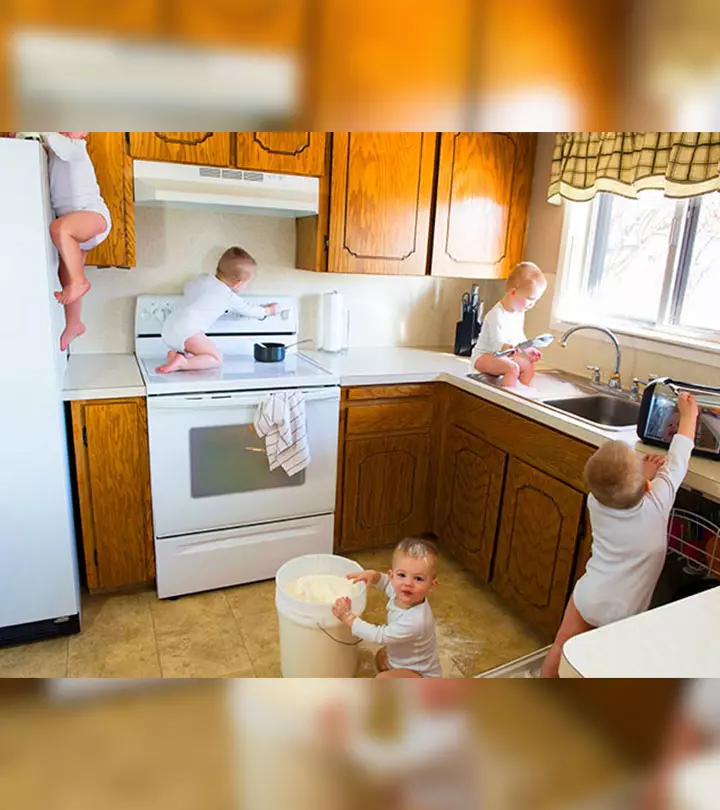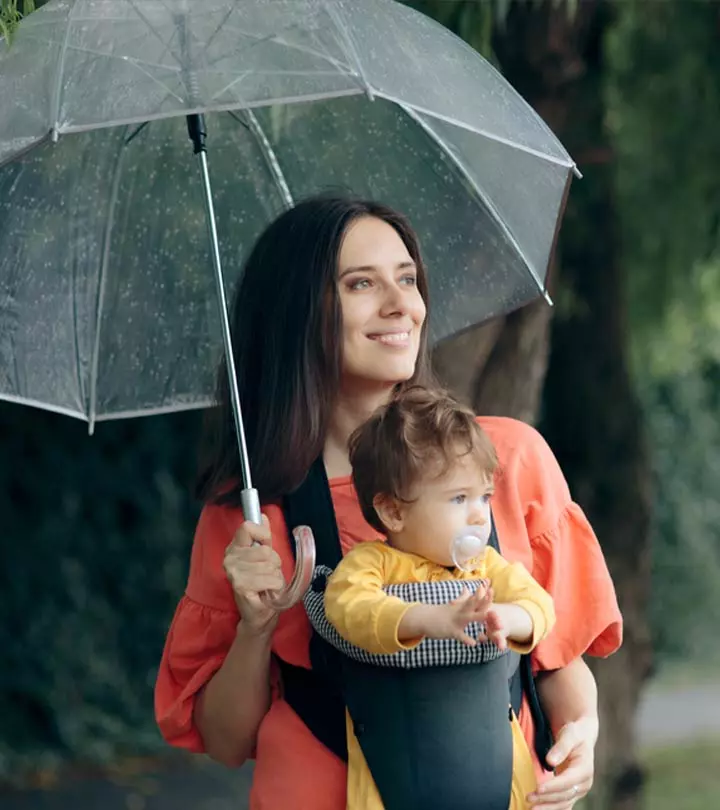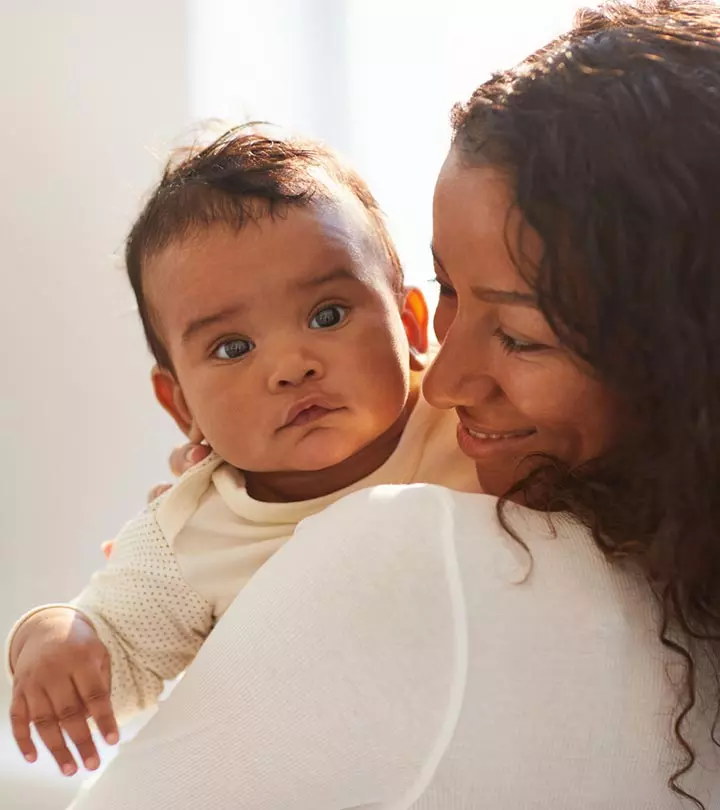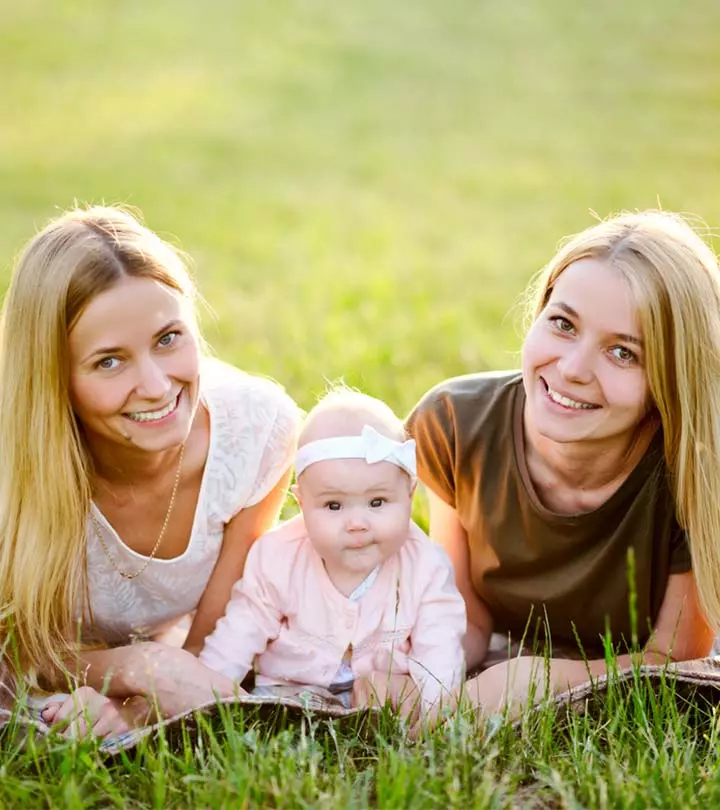
Image: Shutterstock
Parenthood was something that was traditionally reserved only for couples who were deemed “normal”. Same sex parents couldn’t even think of adopting a kid. However, times are changing and so are people’s notions as to what parenthood should be like.

Are you an LGBTQ+ couple looking to make your family bigger? Thanks to the small but notable changes in the system as far as LGBTQ+ rights and policies are concerned, you may now have the option to explore parenthood with your partner. A few years back, this was only a dream, but today, it can be a reality. From adoption to having a child that is genetically linked to you, the options are endless! With the understanding of what the possibilities are, you are one step closer to being parents. Let’s look at the different pathways to parenthood if you belong to the LGBTQ+ community:
Private Domestic Infant Adoption
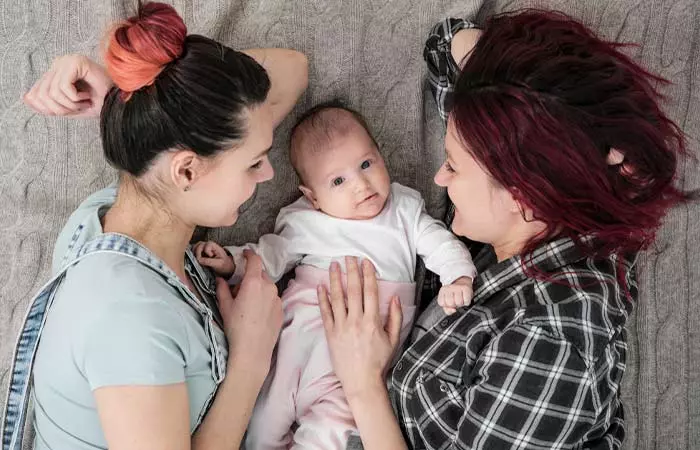
Image: Shutterstock
If you’re looking to pursue parenthood via non-genetic relationships, you should consider private domestic infant adoption. Through this channel, you will be able to adopt a child who is in their infancy. In most cases, a woman who has had an unplanned pregnancy or a teenage pregnancy, and cannot offer the necessary care and support to her child, will put the baby up for private domestic infant adoption soon after birth. Thus, you will have the opportunity to provide a better life for such a child. The mother, too, will be on the lookout for a supportive home for her little one, so go ahead and make a decision.
Private domestic infant adoption can also take place within the family. For example, if a relative of yours is giving her baby up for adoption, you have the option of adopting the child, if the said relative is open to this idea. In such cases, the procedure is less complicated; however, you will still have to take the legal route to be the official parent.
Discuss this option with your partner diligently and if possible take help of a legal aide who can explain the whole process better. There will be a fair amount of hurdles in the form of paperwork and administrative challenges but with the right attitude, your dreams of adopting a little munchkin is totally achievable.
Foster Care Adoption
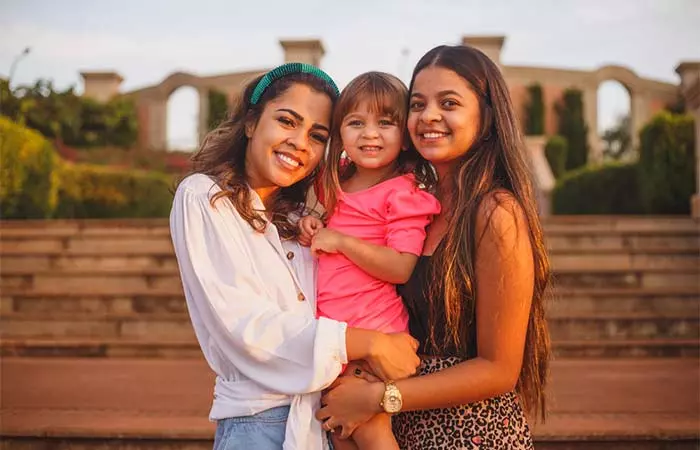
Image: Shutterstock
Foster care adoption is slightly different from private domestic infant adoption. In the case of foster care adoption, the child is most likely older. These children belong to particular foster care systems, such as the state foster care system or a private foster care organization. Unfortunately, most of these children have experienced some trauma. You will see that foster care adoption systems have children from multiple backgrounds under their wing. These kids were probably abandoned by their parents or caretakers who were struggling with drug addiction, poverty, or mental illness. Some of these kids were probably at the receiving end of abuse as well. The thought of adopting a child who has a traumatic past might seem overwhelming, but know that you will be changing the child’s life for the better. The foster care agency will handhold you through the process of adoption. In most cases, the procedure is straightforward and shorter than the private domestic infant adoption program. It is also more affordable.
International Adoption

Image: Shutterstock
While private domestic infant adoption and foster care adoptions are within the state or country, international adoption, as the name suggests, refers to adopting children from other countries. International adoption is a much stricter process, as not all countries have legalized LGBTQ+ relationships. In addition to this, there may be other political issues that are currently ongoing in the country of your choice. Border issues that prevent political asylum is another problem that people face when opting for international adoption. However, although this is difficult, it is a possibility. You have to be aware that this process will be expensive, and the child may have to be older. Talk with the international adoption agency to understand what your options are, and if possible, visit.
Assisted Reproductive Technology
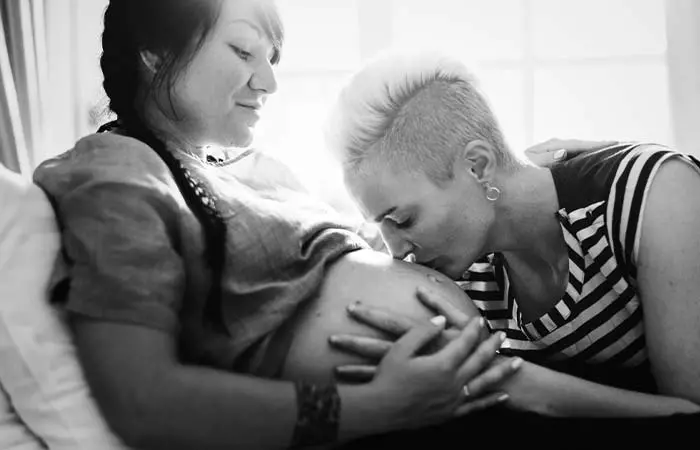
Image: Shutterstock
Assisted reproductive technology has been a blessing to the LGBTQ community and parents who find it difficult to conceive. With technology offering something new every day, you may have the opportunity to have genetic offspring. Through this process, either you or your partner can be a direct and genetic parent to the child. Some of the most common assisted reproductive technologies available are in vitro fertilization, egg donation, sperm donation, or embryo donation. One parent will be the donor. The fertility clinic will consider several factors, such as the medical history of the donor (1).
Surrogacy

Image: Shutterstock
Surrogacy is another type of assisted reproductive technology process that a lot of LGBTQ+ couples opt for. For lesbian couples or gay men who wish to carry their own child, finding a surrogate might be the best option. So, how does this work? Through IVF, an embryo is created. In most cases, this is done using the parent’s sperm, egg, or gamete. Once the embryo is formed through IVF, it is transferred to the surrogate’s uterus. After implantation, pregnancy begins (2). With certain legal steps and a prior understanding between the LGBTQ+ couple and surrogate mother, the baby will soon have a home!
Now that we have shed the light on so many ways you can get a child, if you’ve been wanting to have a child you should not let anything stop you. As long as you and your partner are ready to raise a child and have the means to give him/her a good balanced life, you will in fact be doing a favor to someone who needs it. You don’t have to deprive yourself of parenthood just because you belong to the LGBTQ+ community. Today, you can explore the options we mentioned above and start a lovely family of your own! Have you, or has someone you know from the LGBTQ+ community, tried one of these options? How did that work out? Share your experience with us in the comments below!
References
- Assisted Reproductive Technology
https://www.ncbi.nlm.nih.gov/books/NBK223964/ - In Vitro Fertilization
https://www.ncbi.nlm.nih.gov/books/NBK562266/
Community Experiences
Join the conversation and become a part of our nurturing community! Share your stories, experiences, and insights to connect with fellow parents.





